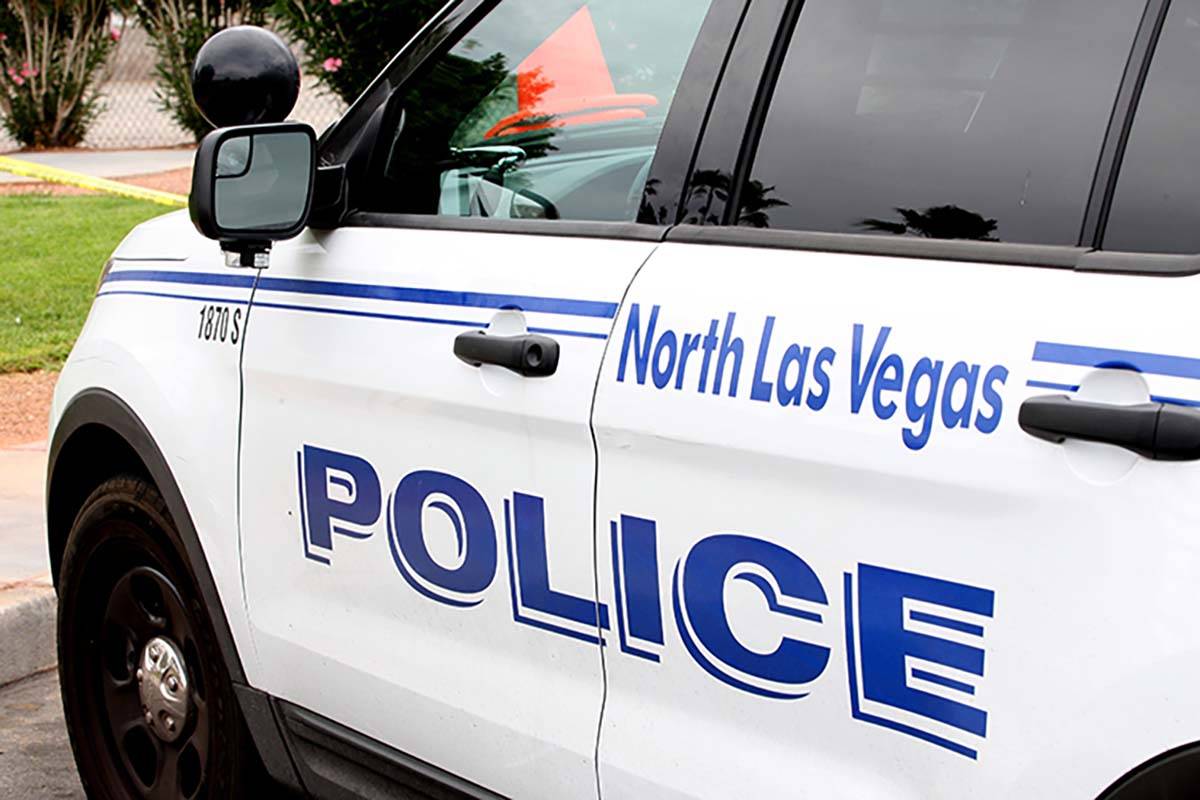Man killed in standoff with NLV police reportedly made suicidal statements
A man who was killed by North Las Vegas police last year was shot by a sniper after pointing a handgun at officers who were taking cover behind an armored truck, a detective said Monday at a public review of the shooting.
On June 22, police negotiated with Robert Wenman, 63, at Craig Ranch Regional Park for about four hours before Officer Robert Jameson, a SWAT team sniper, fired a fatal round from his rifle.
The shooting is at the center of a wrongful death lawsuit filed last year on behalf of Wenman’s daughter, Ashley Rice, who was at a park office during the standoff. The initial filing erroneously claimed a crisis negotiator left the scene before the shooting.
Still, Rice said she believes police had no reason to shoot her father.
“My dad did not have to die that day,” Rice said Monday morning outside the Clark County Government Center, where the review was conducted.
Such reviews were adopted by the county in 2013 and are held when the Clark County district attorney’s office makes a preliminary decision not to pursue charges against an officer after a deadly police shooting or in-custody death.
A North Las Vegas police spokesman declined to comment on the case, citing the pending lawsuit.
Hourslong negotiations
At the hearing, North Las Vegas Police Department Detective Jim Hudson outlined the timeline of events.
Wenman arrived at the park about 3:30 p.m., according to a surveillance camera. Minutes later, he flagged someone down and reported that he had been shot, although he hadn’t been.
Another person in the park said they saw Wenman fire his gun in the air once, but did not call the shooting in to authorities. Later, police did not find a spent shell casing in the park, but did find one jammed in Wenman’s gun.
Wenman told the first arriving officer that he didn’t want to live anymore, Hudson said. Other officers at the scene also reported hearing Wenman make suicidal statements.
Wenman left a handwritten note on his car listing his name and address and his girlfriend’s name and phone number. An officer spoke with Wenman’s girlfriend, who told police Wenman suffered from anxiety, depression and paranoia, Hudson said.
Shortly before 6 p.m., SWAT officers responded to the park to contain the area. Ultimately, more than 40 officers responded to the call, Hudson said.
Police continued to negotiate with Wenman, with officers taking cover behind an armored truck.
Jameson, the officer who killed Wenman, later told investigators he saw Wenman raise his gun twice at a 30- to 40-degree angle toward officers, Hudson said.
Then, he reported, Wenman pointed his gun more deliberately at officers. Jameson told investigators it appeared Wenman was trying to get an angle on officers taking cover behind the truck.
At 7:45 p.m., from a post obscured by grapevines in a community garden, Jameson fired one round, striking Wenman. Cameras did not capture the shooting.
Jameson told investigators he thought Wenman posed an immediate threat to officers and people in a nearby apartment complex.
After obtaining a search warrant for his home, police found notes for Wenman’s daughter and girlfriend apologizing for what happened and explaining how to handle his finances, Hudson said.
Less lethal option
North Las Vegas police did formulate a plan to use less-lethal force, but Jameson fired his rifle before the plan could be enacted.
Peter Goldstein, the attorney representing Rice in the lawsuit, questioned why police did not use less lethal force earlier when they saw negotiations were ineffective.
“So, there was a fundamental lack of leadership,” Goldstein said.
During the hearing, Hudson said using less-lethal force from the beginning would have been a tactical misstep because it potentially could have started a shootout between Wenman and police.
After the hearing, Jaquelyn Jaquez, Wenman’s sister, wondered why police did not use the presence of Wenman’s family at the park to de-escalate the situation.
“He would have put it down,” she said. “He would have cried. He would have said, ‘I’m sorry,’”
The National Suicide Prevention Lifeline, 800-273-8255, provides 24/7 access to trained telephone counselors. The Crisis Text Line is a free, national service available 24/7. Text HOME to 741741.
Contact Blake Apgar at bapgar@reviewjournal.com or 702-387-5298. Follow @blakeapgar on Twitter.


















